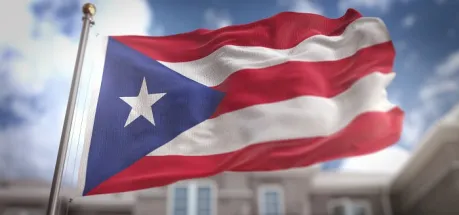Statehood supporters in Puerto Rico have been laying a foundation brick by brick, doing the work of democratic self-determination so Puerto Rico can follow in the footsteps of the 32 other territories that have already become states. Over the century and a quarter that Puerto Rico has been a territory, a broad range of difficult issues have delayed statehood — but all of them are variations of issues overcome by territories that became states. Louisiana, New Mexico, Oklahoma, Alaska, and other states were all among the former territories that overcame economic challenges, differences in language and culture, and internal political opposition to statehood to still be admitted as states of the union.
The only real difference between Puerto Rico and former territories that became states is that Congress waited 17 years after it became a territory to grant U.S. citizenship in Puerto Rico. Once citizenship was granted in 1917, Puerto Rico was like the former territories with U.S. citizens treated as “incorporated” and headed for statehood. That meant Puerto Rico was not like the Philippines, a territory which was treated as “unincorporated” because Congress never granted U.S. citizenship and it was to become an independent nation, not a state.
Majority rule
It was not Congress but the federal courts that wrongly continued to treat Puerto Rico as “unincorporated” after Congress granted U.S. citizenship. That mistake by the federal courts in 1922 created confusion for many years about Puerto Rico’s choices for a permanent post-territory status. But that confusion under outdated court rulings no longer controls Puerto Rico’s future status choices. That is because in 2012, 2017, and again in 2020 the majority of the U.S. citizens living in Puerto Rico voted for statehood — and thereby established a democratic truth, which is that Puerto Rico is now on track to follow in the steps of 32 former territories that became states.
Like all former territories that have become states, Puerto Rico has a U.S. citizen population that has chosen statehood by a clear majority. In those 32 other former territories there was strong opposition to statehood by powerful interests, but once citizenship has been granted, there is no status that creates equal citizenship other than statehood. It is territorial status that restricts the rights of citizenship in Puerto Rico, and it is statehood that redeems the promise of equal rights with all other citizens in all states of the union.
Independent nationhood is a legal option for Puerto Rico, but it received less than 5% of the votes in 2012. As in the case of Puerto Rico, there were supporters of nationhood in Vermont, Texas, Alaska, Hawaii and other former territories that became states. But in all 32 territories and now in Puerto Rico equal rights of U.S. citizenship under statehood was chosen by a majority over separate nationhood without U.S. citizenship.
Like many other former territories that became states, in Puerto Rico special interests thriving under territory status have tried to delay change indefinitely, even proposing that territory status with local autonomy is better than statehood. In Puerto Rico, the option of continuing territory status and seeking greater local autonomy failed to win majority approval in 1993 and 1998 status votes, and now in 2012 a clear majority voted to end territory status in favor of statehood.
Puerto Rico is ready
So it is not that the people of Puerto Rico want to continue to benefit from U.S. citizenship without full and equal rights and duties of citizens in the states. It is the special interests profiting from territorial status who are trying to use political tactics in Puerto Rico and Washington who are trying to delay the moment of democratic truth that Puerto Rico is now ready to join 32 former territories that became states.
Puerto Ricans have proven that readiness by serving in the U.S. military at a higher rate than many states for more than a century. Contrary to inaccurate reports, our fellow citizens in Puerto Rico pay billions in federal taxes every year, with limited exemptions offset by lower federal benefits than the states receive.
Congress granted citizenship in Puerto Rico, but failed to treat Puerto Rico like the former territories in which citizenship meant incorporation leading to statehood. Now Puerto Rico has petitioned for statehood and is still waiting for Congress to define terms of admission. Every U.S. territory populated by U.S. citizens that has petitioned through democratically elected representatives for statehood, or which has voted for statehood, has been admitted.
It is time for Puerto Rico’s petition for statehood to be honored, and for Congress to establish the terms for admission as it did for 32 other former territories that became states.








No responses yet